Some Thoughts On ONE And His Themes
some thoughts on ONE and his themes
i’ve been sitting on this for a little bit bc it’s a more personal thing and super tough to articulate besides, but here goes.
Most shounen mangaka center their stories around superpowered teenagers and children, which is just fine! I like wish fulfillment just as much as the next person. But I have to give a shoutout to ONE for doing what I haven’t yet seen another mangaka do, and capturing the particular mid-to-late-20′s sort of mini crisis a lot of people get after college, where they’ve been working justt long enough that they’re starting to stare down the barrel of “is this what i’m going to do forever and ever until i die oh god” and “I have a job and checked off all my ‘accomplishment’ boxes but now am floundering without the structure of childhood and academia”. As someone who went through a complete 180 career change in my early 20s, it means so much to me to see a young-20s character like Reigen, or Saitama, be disillusioned with their careers and switch tracks, or be depressed and unable to find fulfillment in their “same-old” routines, and have that be an important, central point of the story. I relate painfully to Reigen sitting at his desk and thinking about how he was bored and unfulfilled at his old job, and i feel like I can really appreciate the fact that he left it and made a change for himself. I relate to Saitama, if not to his godlike powers then to his feeling of “is there all there is to life? what is there to live for besides just my accomplishments?” It sounds dramatic, but it’s easy as a young adult, especially a financially struggling young adult, to ‘work to live’, and neglect everything else to the point where when you finally stop to take a look around you, you realize you’re not sure what you’re actually living for. What did you dream of doing as a child? What do you want, on your deathbed, your life story to be? your memories to be?
What does fulfillment even mean?
With Saitama, ONE answers this question first by pointing out that challenges and obstacles give life meaning. When we watch OPM, we’re not rooting necessarily for Saitama. We root for Mumen Rider, or Genos, or any of the myriad other heroes that we know don’t stand a chance. Saitama’s punch might give catharsis, but the pathos is all in the side characters. And Saitama knows this! the manga is all about Saitama struggling to find meaning in a world without those obstacles. And this leads to ONE’s second answer, through King: life is not just about maxing out your level- it’s also about exploring the game. it’s about collecting every outfit, or talking to every NPC, or befriending all the companions, or completing every side quest. ONE shows us that once you look up from your single minded drive to climb the ladder, there’s a ton more to see! friends to make! hot pot to cook! cool new stuff to investigate and explore with those friends! And this is so comforting to me, as a young adult, to have a piece of media show me that not only is struggling okay and good, but that it doesn’t and shouldn’t consume everything and that there’s more to explore.
With Mob Psycho- god, where to start with Mob Psycho. First of all, I was expecting a typical ‘everyone’s 12-14 years old and OP as fuck’ shounen. I was not expecting one of the central characters to be Reigen “I’m almost 30 and I’ve switched careers and am not succeeding in the traditional sense” Arataka, or that another central character would be Serizawa “I AM 30 and I d e f i n i t e l y switched careers and have doubly not been successful in the traditional sense” Katsuya. Both these characters struggle with the same question in different ways. Serizawa has a more straightforward narrative: he shows us that it’s never too late to turn your life around. At 30, socially anxious and with nothing on his resume besides “dropped out of middle school to become a terrorist”, Serizawa gets a haircut, gets his act together, goes back to get his degree, and by the end of the manga is not only well on his way to academic success but is really becoming his own person, with a supportive friend group, self confidence, and his own hobbies and interests. Reigen struggles to find meaning in his life beyond just being a boring salaryman - to “become someone” - and eventually through lifting his head up from the daily hustle and opening himself to others, realizes that he HAS become someone, though perhaps in a different way than he expected: he has become a very important person to all of the esper kids and to Serizawa, and through influencing them he becomes the backbone of the manga itself. Reigen shows us that personal growth can be nontraditional, and responsibility can be scary, but both lead to fulfillment.
I never truly thought about these kinds of things when I was younger, because I wasn’t living them. and the beauty of it is that both OPM and MP100 can be read by an audience without them; they can be enjoyed just for their comedy and their crazy nuts action scenes. But ONE put in characters struggling with these young-but-not-SUPER-young-adult issues, and it makes me, at least, feel seen. It makes me feel like I’m not alone in worrying about these things, in fearing the mundanity of routine, in struggling to find meaning in life while I’ve got the strength to grasp it. And it makes me feel like becoming an adult doesn’t have to be such a bad thing, after all.
More Posts from 5rzefona and Others

Lovely, sun-filled room is perfect for plants. (The lucky lady who lives here says, “ Y’all… I am never going to get over how privileged I am to be living in this room.”)
via instagram







Making a Villain Richard III by William Shakespeare Look What You Made Me Do by Taylor Swift Shadow and Bone by Leigh Bardugo Tangled (2010) screenplay by Dan Fogelman No Good Deed (from Wicked the Musical) by Stephen Schwartz Untitled Poetry by Stephanie Bennett-Henry mad woman by Taylor Swift


if you define “woman” as anyone who feels like one, or whatever, then there is no actual basis of female reality. the struggles of natal women are erased and swept under the rug in the name of “inclusion” and we move backwards.

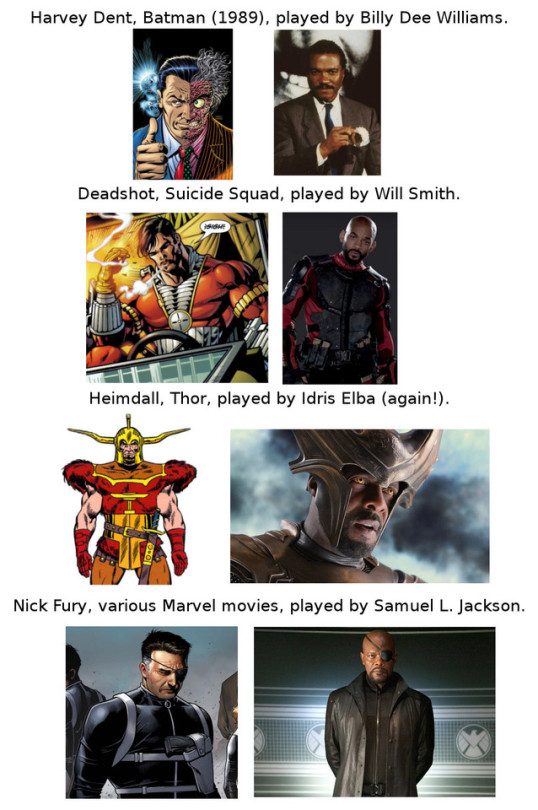

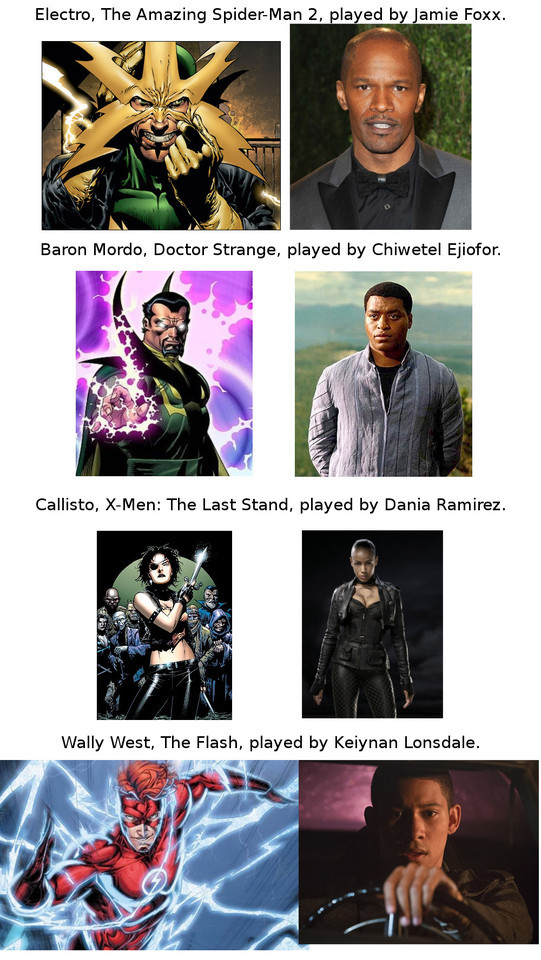

I’m really obsessed with the idea of worldbuilding that refuses to clarify its relationship to reality
When we read books we instinctively try to categorize books based on the kind of book they are, oh this is fantasy, post-apocalyptic, etc. and we try to find out things and clarify what kind of world it is and whether or not the things in it are make believe and how make believe they are.
So what if I...Messed with that process?
For instance. A book is set in Ohio. We mention the names of cities in Ohio and pieces of Ohio’s history and famous landmarks in Ohio and it’s incredibly well researched, even down to the names of museums in Cincinnati or something. We’re talking very firmly established in the facts of a place. It’s kind of an eerie book and in some ways the setting seems weird or cloudy or dreamy but it seems grounded in just the amount of facts that are in it about the setting.
There are little factoids dropped here and there. At first very boring ones. Something that happened at an Ohio water treatment plant in 1995. What it takes to serve on a jury in Ohio. Ohio laws about spraying pesticides on corn. Facts about corn itself. Probably one of those cutesy little facts about weird local laws.
They start to get...stranger. The little bits of worldbuilding. Did you know that Ohio has had more nuclear power plant accidents than any other state? In this small town in Ohio, you used to need a license to perform an exorcism! This charming small town’s mayor is a ghost. In Ohio, it is legal for doctors to draw more of your blood than they need to sell to third parties. There are no Dollar Tree’s in Ohio. (Have you ever seen a Dollar Tree in Ohio? Are you sure?)
At some point the reader catches onto something that is clearly not right. Maybe the book states at some point that Indiana is to the east of Ohio instead of the west. This is clearly a mistake, and they move on.
Some things about the everyday realities of the setting seem peculiar. There seem to be quite a bit of packs of wild dogs about, and mold seems to grow a lot quicker. Grass is described very strangely—a shade of green that isn’t very characteristic of grass. There seem to be a lot of cults, and there are a lot of empty lots in town enclosed with razor wire for no apparent reason. Sometimes a character’s hands grow suddenly cold, and they panic and hasten inside. Frostbite? Is it the climate? Why does the author write that way?
At some point, though, it becomes clear that the author is fictionalizing a bit. It may certainly be the case that nuclear accidents have occurred in Ohio more than any other state, but the tale of how deer from that area glow in low light is probably made up. And though that famous televangelist existed and it seems plausible enough that he owned tigers, like some kind of janky drug dealer would purchase, it seems implausible that he regularly fed people to them.
As the story continues, more and more facts seem a little off, though. The spatial relationship of Ohio to its surrounding states, and the shape that Ohio is (it’s described at one point as having a panhandle, and as bordering East Tennessee) seems to make less and less sense. The wild dogs are massive, and have smoldering eyes like hellhounds. One nuclear disaster apparently wiped out a full sixth of Ohio’s population. The deer, plagued with cancer from the radiation, have turned carnivores. The wild horses run under a red sky—the sky is always described as red. The original capital of Ohio is lost, its stones dashed down in the war that made its citizens turn to cannibalism. The invasive plants of Ohio can pry open windows, and once choked a woman in her sleep. The people of Ohio dream more frequently of birds of prey gouging out their eyes than people in any other state. There are plagues of rats in Ohio that sometimes devastate towns. In Ohio, unexplained disappearances are rarely investigated. There are eagles in Ohio—their wings blot out the sun. Ohio briefly seceded from the Union in 1922, and there are those that still believe in the Free People’s Empire of Ohio. Ohio shares a border with Arizona. Ohio has a coastline on the edge of a dark and perpetually cold sea.
It becomes abundantly clear that this is not Ohio. It is something else, named Ohio and superficially wearing Ohio as a skin, but it is not Ohio. And looking back, it is hard to tell when it stopped being Ohio. When it stopped being just quirky Americana and an eerie mood and started being...this. Small details were off early on, but these were not noticed, because they seemed so normal. The sky was always described as red, but that was because it was supposed to be sunset...right?
The governor of Ohio has been struck down. All bow before the God-Emperor of Ohio. The black wolves of Hell await those who will not bow with their teeth.
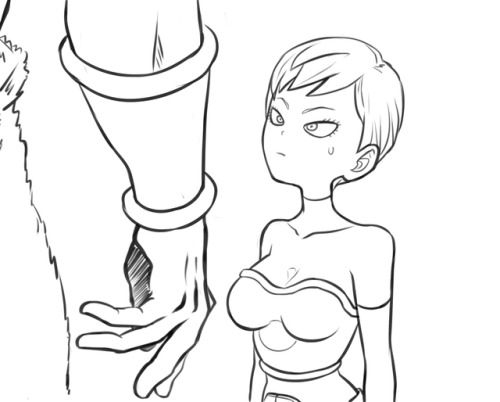
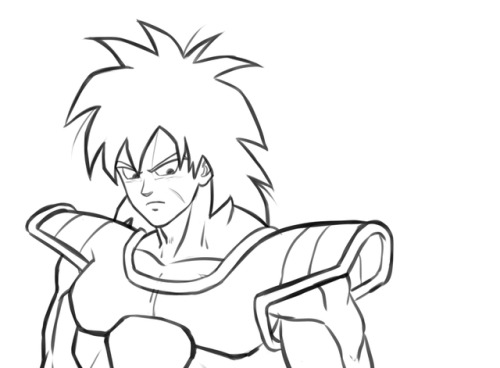
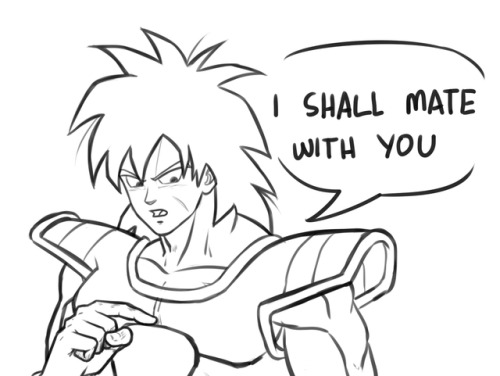
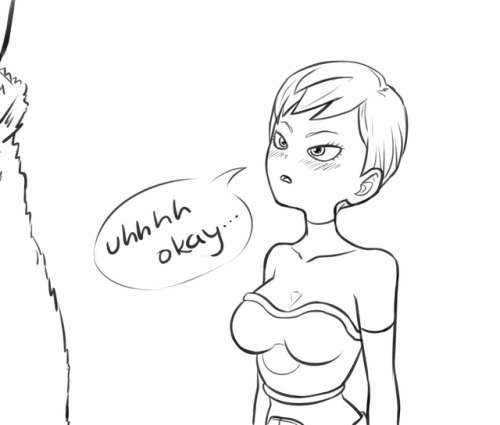
im back slightly better than before but at least i feel like drawing again.

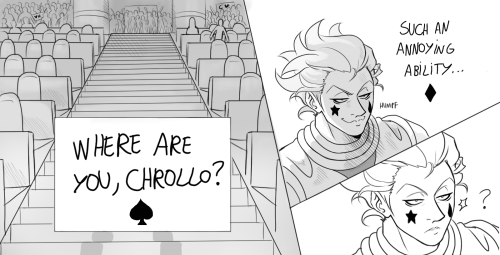


- Why must you hurt me like this, Illumi?…♠
Books
Viktor really loves books, his apartment is crammed with them. When he was younger, some of the more fantastical stories ended up inspiring a lot of his routines, ever desperate to play out the hero of certain things he’s read.
As he gets older, Viktor basically finds reading to be one of his few hobbies. At first he does it a lot at Yakov’s insistence to improve on his English around the time he becomes internationally famous, essentially sticking to the classics at first (causing him to sound incredibly pretentious for a year or so), before deciding he genuinely enjoys it, expanding his tastes more into non-fiction.
He picks up a pretty bad habit of starting the longest novels possible on flights to competitions, which often ends in him not finishing it, and proceeding to spend basically every moment off the ice with his nose in a book (which is why a lot of the other skaters go unnoticed and recognised).
Yuuri at first thinks it’s a little weird how Viktor seems to have random spouts of knowledge on a seemingly infinite amount of subjects, and can quote things like detailed philosophy out of nowhere, but mostly he puts it down to him just being a sophisticated person, and that’s what he assumes sophisticated people do.
It’s only when they move to St Petersburg together, and Viktor is reunited with the books that he had no space for in Japan, that Yuuri realises that his fiance is… well, a book nerd. All things considered, Yuuri is a night owl, but that’s nothing compared to Viktor when he’s in the middle of a good book. Thankfully, Yuuri manages to adapt to sleeping with the bedside light on, and the sound of turning pages.
He begins to find it endearing one of the few times he actually gets a response when he politely asks what he’s reading (usually it’s just a mumble as he holds up the front cover). In this case, it happens to be some sort of mythology collection, which Viktor goes into about half an hour of excited discussion about every little thing he finds interesting. It’s like some kind of barrier has gone down and Yuuri can’t help but loving the man just that little bit more with every passionate word that slips from his mouth
Even if he does force Yuuri into dressing as Harry Potter for a party one time.
-
 nichtzwinkern liked this · 1 month ago
nichtzwinkern liked this · 1 month ago -
 bubbles-62 liked this · 2 months ago
bubbles-62 liked this · 2 months ago -
 plantpretender liked this · 4 months ago
plantpretender liked this · 4 months ago -
 februarywhite liked this · 4 months ago
februarywhite liked this · 4 months ago -
 squ1dysnoodle reblogged this · 8 months ago
squ1dysnoodle reblogged this · 8 months ago -
 squ1dysnoodle liked this · 8 months ago
squ1dysnoodle liked this · 8 months ago -
 aemyris liked this · 8 months ago
aemyris liked this · 8 months ago -
 dysfunctionalburden reblogged this · 9 months ago
dysfunctionalburden reblogged this · 9 months ago -
 jellyfishescantype liked this · 10 months ago
jellyfishescantype liked this · 10 months ago -
 dysfunctionalburden liked this · 10 months ago
dysfunctionalburden liked this · 10 months ago -
 melissa-titanium liked this · 10 months ago
melissa-titanium liked this · 10 months ago -
 bark-and-bones liked this · 1 year ago
bark-and-bones liked this · 1 year ago -
 zurka-durka liked this · 1 year ago
zurka-durka liked this · 1 year ago -
 crabcrabcrabmeat liked this · 1 year ago
crabcrabcrabmeat liked this · 1 year ago -
 quoske liked this · 1 year ago
quoske liked this · 1 year ago -
 part-3 reblogged this · 1 year ago
part-3 reblogged this · 1 year ago -
 eefozlab liked this · 1 year ago
eefozlab liked this · 1 year ago -
 yaraneechan liked this · 1 year ago
yaraneechan liked this · 1 year ago -
 yaraneechan reblogged this · 1 year ago
yaraneechan reblogged this · 1 year ago -
 hemisphere-ortsa liked this · 1 year ago
hemisphere-ortsa liked this · 1 year ago -
 caffeinatedsunbear reblogged this · 1 year ago
caffeinatedsunbear reblogged this · 1 year ago -
 caffeinatedsunbear liked this · 1 year ago
caffeinatedsunbear liked this · 1 year ago -
 shortstorylong113 liked this · 1 year ago
shortstorylong113 liked this · 1 year ago -
 sodasexual liked this · 1 year ago
sodasexual liked this · 1 year ago -
 unremarkablescooter reblogged this · 1 year ago
unremarkablescooter reblogged this · 1 year ago -
 sleep-is-my-one-true-love liked this · 1 year ago
sleep-is-my-one-true-love liked this · 1 year ago -
 studio-hatter liked this · 1 year ago
studio-hatter liked this · 1 year ago -
 toastytoaster22 reblogged this · 1 year ago
toastytoaster22 reblogged this · 1 year ago -
 ygodmyy20 reblogged this · 1 year ago
ygodmyy20 reblogged this · 1 year ago -
 ygodmyy20 liked this · 1 year ago
ygodmyy20 liked this · 1 year ago -
 russenoire reblogged this · 1 year ago
russenoire reblogged this · 1 year ago -
 russenoire liked this · 1 year ago
russenoire liked this · 1 year ago -
 categoricalterror liked this · 1 year ago
categoricalterror liked this · 1 year ago -
 columbeauform liked this · 1 year ago
columbeauform liked this · 1 year ago -
 orchiiii liked this · 1 year ago
orchiiii liked this · 1 year ago -
 thedamsnackshop reblogged this · 1 year ago
thedamsnackshop reblogged this · 1 year ago -
 lau1747 liked this · 1 year ago
lau1747 liked this · 1 year ago -
 samarveer774 liked this · 1 year ago
samarveer774 liked this · 1 year ago -
 dollfat liked this · 1 year ago
dollfat liked this · 1 year ago -
 kyogre-blue liked this · 1 year ago
kyogre-blue liked this · 1 year ago -
 smeefman liked this · 1 year ago
smeefman liked this · 1 year ago -
 h4llomoze liked this · 1 year ago
h4llomoze liked this · 1 year ago -
 fucktobirama reblogged this · 1 year ago
fucktobirama reblogged this · 1 year ago -
 oldcf liked this · 2 years ago
oldcf liked this · 2 years ago -
 edarfly liked this · 2 years ago
edarfly liked this · 2 years ago -
 ria-air liked this · 2 years ago
ria-air liked this · 2 years ago -
 iamnotawendy reblogged this · 2 years ago
iamnotawendy reblogged this · 2 years ago -
 iamnotawendy liked this · 2 years ago
iamnotawendy liked this · 2 years ago -
 wookiekins liked this · 2 years ago
wookiekins liked this · 2 years ago -
 do-the-jamrock-shuffle reblogged this · 2 years ago
do-the-jamrock-shuffle reblogged this · 2 years ago